Research
AHAH! Heat Scenario
Abductive Heuristics Alternate Reality Role-playing Simulation : Heat Scenario
Team
Sha Xin Wei: (Professor | Synthesis | Complex Adaptive Systems | Arts, Media & Engineering) ARS Design
Sarah Bassett (Professor of Practice | Resilient Visions CoLab | School of Public Affairs, Emergency Management & Homeland Security): Scenario Design
Nicholas Pilarski (Interim Center Director and Associate Professor | Media and Immersive eXperience Center | Resilient Visions CoLab | Film School | Arts, Media & Engineering): ARS Design
Andrew Robinson (Synthesis): Interactive media programming
Yannie Szeto (Resilient Visions CoLab): Graphic arts and production
Travis Kupp (Complex Adaptive Systems): Research, participant-observation
Overview
AHAH! is a decision-making role-playing simulation where groups of people from a community practice navigating unpredicted and unintended consequences in scenarios of extreme heat challenge. The game enables players to simultaneously build relationships, figure out the importance of systemic or hidden interdependencies, balance thinking about critical longer term or non-local effects with dealing immediate problems based on their own contextual understanding. AHAH! creates a space for players to navigate surprise events, examine power asymmetries, and play out imaginative strategies in plausible scenarios before we have to live them. We give players a chance to pool their knowledge about infrastructures, institutions and communities at all scales, and their social and technical know-how, in order to build an understanding of how these could and should interact under novel, unpredicted, and unprecedented circumstances.
This approach to disaster preparedness offers an alternative to traditional training in that the scenarios are only conditioned, not scripted by the designers, so they are fleshed out and navigated by the participants. The point is to exercise anticipatory muscles using what is called complex systems (or “abductive”) heuristics, something used in everyday life. These are a set of concepts to keep in mind when looking at a complex system, organization, or situation. They are also tactics, or ways of accomplishing things when confronted with navigating uncertain circumstances beyond anyone’s control but in which you have a stake.
Introduction to Scenario for Role-players
We invite you from the city’s infrastructure and public sectors to play various institutional as well as personal social roles, under fictive conditions. The premise is that it’s early spring, 2025. Imagine that you live in a community – which could be anywhere in the world – of about 250,000 people. The local government has assembled you as a task force of officials, utility representatives, neighborhood leaders, and business owners to best organize the city before the heat season that’s about to hit the city.
Various stakeholders have incommensurate priorities; no one can take overall priority.
As summer approaches, decisions made this spring about the human, fixed, or mobile capital will determine how well the community weathers the challenges ahead. Who takes responsibility for which preparations, and how these various groups coordinate, will be crucial to community resilience in the face of unanticipated or unprecedented conditions.
Workshop
7 March 2025 | Media and Immersive eXperience (MIX) Center | Mesa AZ | ASU
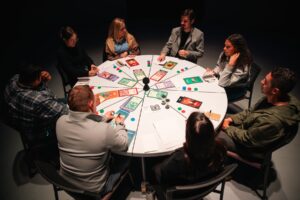
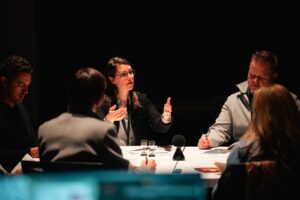
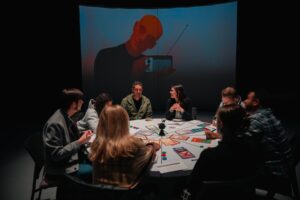
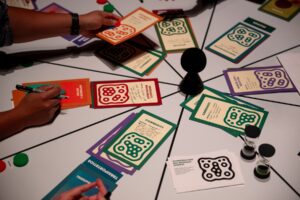
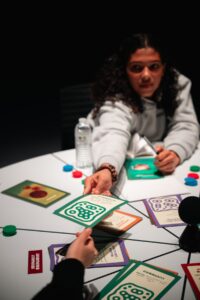
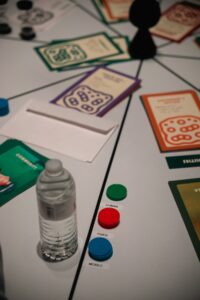
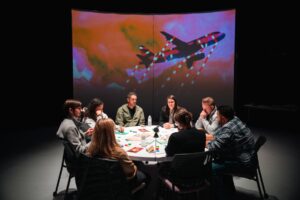
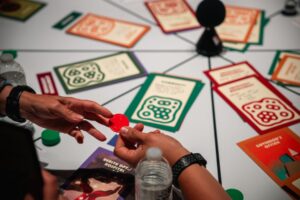
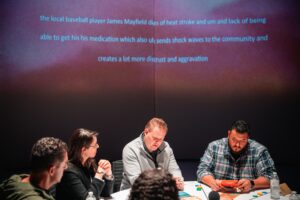
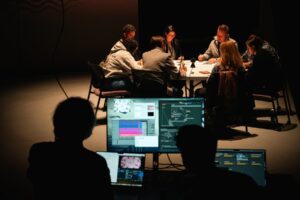
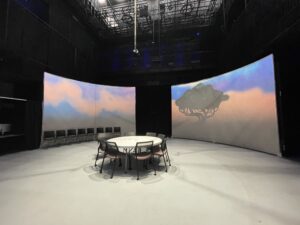
Related Work
This in-person alternate reality role-playing simulation builds on the Navigating Uncertainty proof-of-concept developed with and commissioned by the United Nations Development Program.
See also